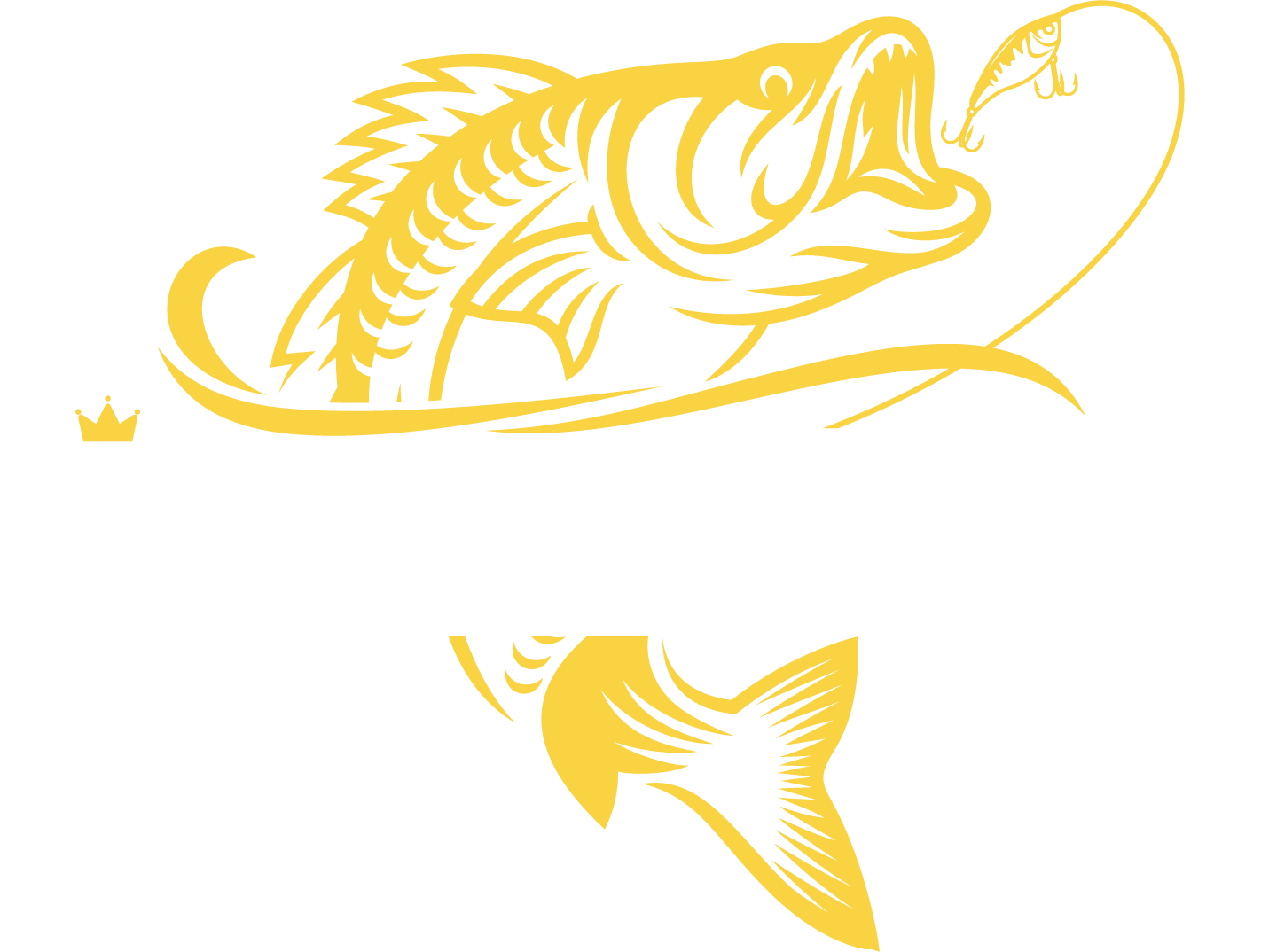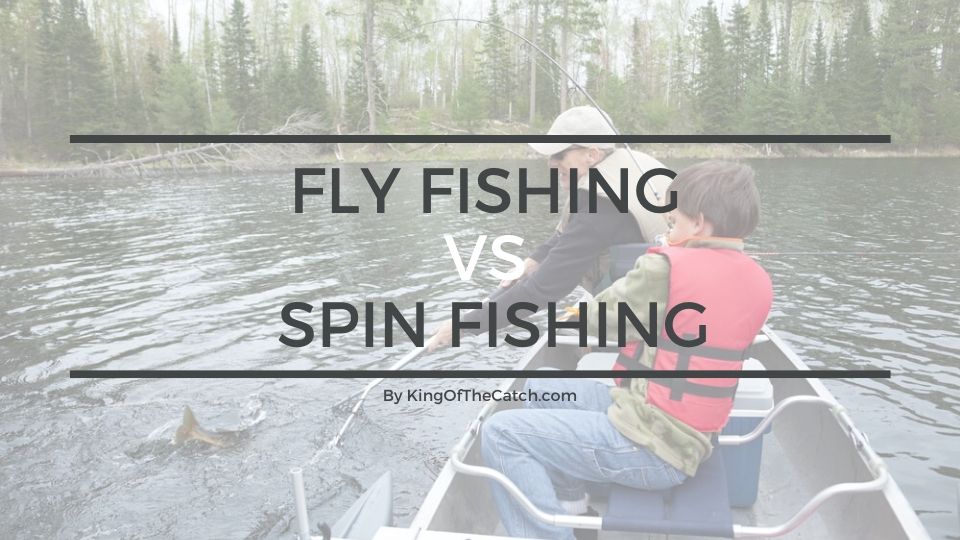Fly fishing is one of the most popular types of fishing in the world these days, but the spin fishing is not overlooked either. Whether you are a seasoned veteran or a beginner, you may not always understand the main differences between these different types of fishing.
Besides, from many points of view, fly and spin fishing are quite similar.
Fly Fishing Vs Spin Fishing
I will be straightforward with you – the main difference is in the line and its role. Practically, when you fly fish, it is the weight of the line that pushes the hook as far as possible through the air.
On the other hand, spin and bait fishing put more accent on the lure – it could be the sinker too. These elements are responsible for the casting distance.
All in all, there are smaller differences between these types and they usually target every single aspect of fishing.
Different types of rods
The rod type varies from one type of fishing to another. This is probably one of the main aspects to take in consideration when buying equipment. You cannot go fly fishing with a rod that was specifically developed for spin fishing.
Sure, you might be able to catch something, but the overall experience will not be too efficient.
Anyway, a fly fishing rod is meant to be lightweight. Casting line is normally a false operation – practically, you will not rely on the weight of the rod to throw line through the air. Instead, the line is responsible for most of the operation.
Such rods put no pressure on your arms, whether you are getting your equipment ready or fighting fish.
On a different note, rods for spin fishing are much heavier. Some spin fishing rods are up to three or four times heavier than fly fishing rods. This is because you will actually use the weight of the unit in order to cast as far as possible.
When spin fishing, you will often rely on monofilament line and can throw it away with a single cast. It feels much easier.
Flies versus lures
Everything is designed to work together, regardless of which type of fishing you prefer. When it comes to fly fishing, you will normally use flies. These things are lightweight and will not really help when casting.
They have no role in your cast, as the line weight is the aspect that makes the difference.
Flies tend to imitate pretty much any type of food for fish. They are supposed to attract fish and tempt it to bite. Flies may come in more forms, shapes and sizes. You can find streamers, nymphs, dry flies and even emergers for fly fishing.
Like I said before, spin fishing puts the accent on the lure. You will use the weight of the lure to cast far. You do not have to be a genius to realize that the lure must be quite heavy in order to take the line far. This is one of the main differences when choosing what to put on that hook.
Just like flies, lures may come in more shapes and sizes. However, most of them tend to imitate a fish. They look like small fish that your target is likely to feed on.
They come in more colors and shapes. Obviously, the more you know about your fish, the easier it is to choose the right lure.
Lakes versus rivers
Waters around you should be your first stop when not sure what to get or what type of fishing to discover. On the same note, different types of waters carry different species of fish, which will also dictate your final decision.
There are no general rules regarding fly fishing. Most anglers will fly fish on moving waters. It is simply more efficient. However, you can easily fly fish in still water as well. In fact, still water fly fishing has gained lots of notoriety over the past few years.
Simply put, you can fly fish in rivers and streams, but also in still lakes.
Spin fishing is a bit more restrictive. You cannot really spin fish in a river or a steam. Well, you could, but the final result would not be too encouraging. Instead, you would have to be content with a couple of fish only.
This is why spin fishing is primarily recommended to still waters.
Different line types
There are more factors that go hand in hand, regardless of the fishing type. For example, the line must be chosen with the rod in mind, which must be selected according to the type of fishing you perform. Every little thing has to be thoroughly considered for maximum efficiency.
When it comes to the line, fly fishing asks for the fly line. You can also use a tippet or leader. In other words, you want a line that can help you cast lightweight flies.
Again, this type of line is a bit heavier than the one you normally use in spin fishing.
From a different point of view, spin anglers will normally rely on monofilament line. The monofilament line is slowly becoming a standard in this industry. However, it is not the only option out there. You can also find other similar types.
There is one rule to keep in mind – the line must be able to cast heavy lures. While thinner and lighter than fly line, it is normally more resistant and can easily deal with heavy lures.
Types of fish
Fly fishing gives you lots of options when it comes to species and types of fish – many more options than spin fishing. For example, you can go for anything between cold water fishing and nymph fishing. You can go to salt waters, but you might as well fish in still waters.
There are, of course, a few restrictions, but overall, you have lots of choices. There are, of course, more considerations to think about.
For example, water depth is quite important, not to mention the strength and size of your fish. If you think about it, an aggressive marlin will always bring in a more challenging experience than a small bonefish.
Just like with everything else in life, the more you know, the better. When it comes to the specie, find out more about the fish in your area, the type of water and the season. It is pointless to go after chub when there is nothing around, right?
Spin fishing will also tackle lots of species. In fact, you can target pretty much any type of fish. But generally, you are more likely to succeed in freshwater.
Some of the most popular species to target include pike, trout, bream, perch, bass and salmon, but the list is much longer than that.
Your location is just as important. For example, spin fishing is popular and easy with salmon in British waters – especially around Ireland.
On the other hand, if you go fishing in Utah, USA, you are more likely to succeed with bass using the exact same technique.
Best seasons
The season is relevant to the type of fish, rather than the type of fishing you choose. Then, the type of fish will indicate the type of water, which will suggest the right fishing technique. I know, it sounds complicated, but it is not.
Think about the waters around you – still, fresh, salt and so on, as well as the species. Since fly fishing works for certain waters and species, you will have to go on with the season based on these factors. There is no such thing as a spin fishing season. There is, however, a trout season or a salmon season.
The season depends on the location and area. There is no such thing as a general answer. Even if some countries have certain dates for seasons, there might be fisheries or areas with their own dates. Find out more about the area you live in or plan to travel to, only to prevent disappointment.
Final Words
As a short final conclusion, there are quite some differences between fly fishing and spin fishing. Apart from all these little things, the overall intention is just as important.
When you opt for fly fishing, you plan to fool the fish. Those flies look natural. This form of fishing is quite difficult, so it will certainly challenge you. Challenging yourself makes you better and will bring in a more rewarding feeling. Fly fishing works with most species – more or less.
Initially, fly fishing was ideal for trout, as trout likes insect imitations. But then, recent results have shown that you can change pretty much anything with a fly rod.
Spin fishing is all about quantity. The primary role of spin fishing is to get as much fish as possible. The more species you go for, the more suitable spin fishing is.
Bottom line, it is up to you to choose what feels more appropriate for your style and preferences, but always do it with your surrounding waters in mind.

Niels Thomas is a wildlife expert and fishing fanatic that works with major fishing brands like Deeper Sonar, Abu Garcia, Berkley, PENN, BassPro and Pure Fishing. Through sharing the best fishing tips, tricks, gear reviews, locations and much more he hopes to inspire fishing fanatics to start their own journey towards becoming the King of the Catch!


